From The Backyard… Ambient Darkness
Ann Hutton | May 15, 2015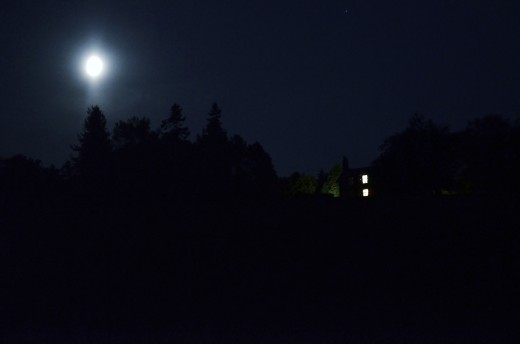
Courtesy of Ryan Thomas via flickr
No, I’m not referring to the post-industrial mood music by such artists as Mathias Grassow or Klaus Wiese, those other-worldly sounds meant to drive the listener inward for a soul-searching journey. Rather, I am contemplating measurable nighttime darkness—the absence of artificial light—available to some of us here in the nether lands of Upstate. I live on a road with no streetlamps and far from commercial buildings emitting constant white beams of brightness (often seemingly for no purpose). I sit on the back porch after dusk to watch fireflies when they rise off the grass and float up into the trees. As the light disappears, my eyes struggle to adjust.
Sometimes it’s downright spooky outside at night. If no moonshine casts a glow on the lawn, it’s impossible to catch a glimpse of what animal is trotting into the woods after raiding my compost pile—could be a dog, a bear, a skunk. If a tree branch crashes to the ground, I can’t investigate until morning. And walking down the road after dinner at the neighbors’ house on a cloudy night can be a little creepy. But I’ve come to appreciate being wrapped in the cloak of darkness. I like it.
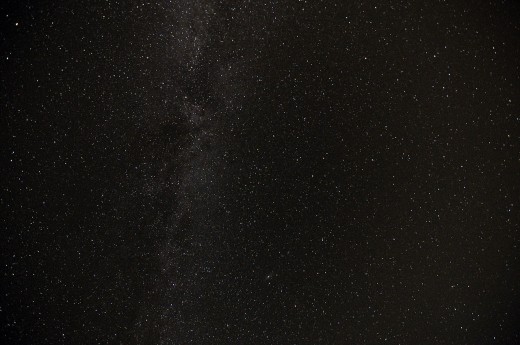
The stars at night. Courtesy of chensiyuan at Wiki Commons
It is soothing to watch the evening sun crest in the west and experience the twilight creeping across the yard. It’s astonishing to stand on the driveway after returning home late on a clear night to witness the countless pricks of starlight thrown across the sky. And getting up in the wee hours before dawn for a drink or a pee, especially during a nighttime storm or a power blackout, can pose sensorial challenges that might otherwise go dormant.
The natural rhythm of clarity/obscurity created by our side of the earth turning away from the sun is the biggest illustration of the principle of Yin/Yang we humans have going for us (other than life/death, of course, which is evident to anyone who diddles around in a garden). Living in ambient darkness seems to reset the biological clock, even for plants. This could be a good thing, as I’ve discovered in the decade we’ve been here. The last time our motion-sensor floodlight burned out, we didn’t replace it—it seemed so intrusive and demanding.
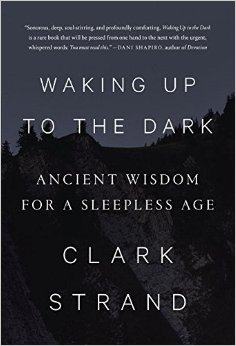
In his newly released book Waking Up to the Dark, author Clark Strand says that regularly experiencing the ambient darkness not only attunes the body to a more healthy wake/sleep cycle, but that doing so also allows for a natural return to other-worldly sensitivities. He suggests the possibility of tuning in to the nightly visit of deep introspection, and even of divine information. It turns out waking up to the darkness can drive a person inward for a soul-searching journey, one that causes a much-needed re-balancing with nature.
Try it. Turn off your lights. Unplug all your gadgets that permeate the darkness with red and blue and white alarm. Go outside and stand on the darkened earth.
Read On, Reader...
-
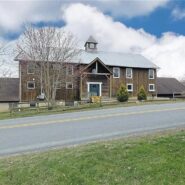
Jane Anderson | April 1, 2024 | Comment A Westtown Barn Home with Stained-Glass Accents: $799.9K
-

Jane Anderson | March 25, 2024 | Comment A c.1920 Three-Bedroom in Newburgh: $305K
-

-
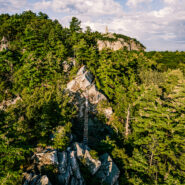
Jaime Stathis | February 15, 2024 | Comment The Hudson Valley’s First Via Ferrata at Mohonk Mountain House

